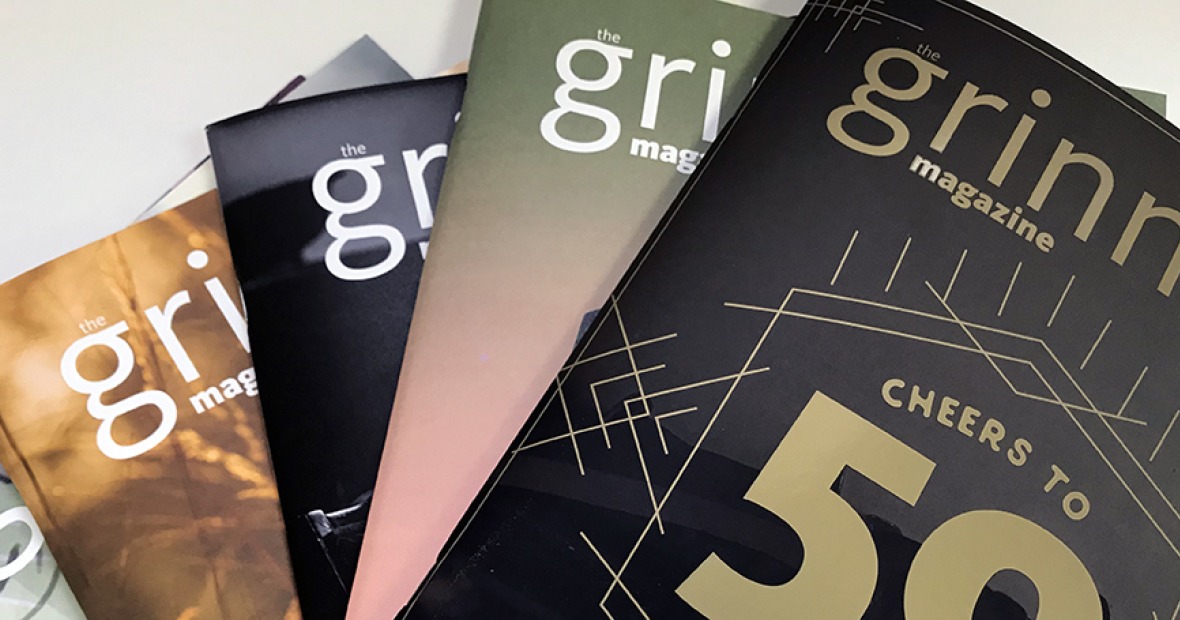Readers Speak Volumes
Results from the fall 2017 reader survey
Michele Regenold ’89
How do our readers think we’re doing with The Grinnell Magazine? That question was the main focus of a reader survey conducted by Grinnell’s Office of Analytic Support and Institutional Research for the Offices of Communications and Development and Alumni Relations in October and November 2017. Survey invitations were emailed to 15,313 people who receive the magazine; 1,862 people, 12.2 percent, responded.
In spring 2015, the College conducted a reader survey to gather feedback and solicit ideas for a planned redesign of the magazine, which was implemented with the fall 2015 issue. Two years after the redesign, the magazine staff wanted to see what changes resonated with readers.
We listed 10 new or significantly modified sections of the magazine and asked readers whether they read them regularly, occasionally, or never.
|
Department TItle |
Regularly |
Occasionally |
Never |
Type of Content |
|---|---|---|---|---|
|
Then and Now |
69% |
29% |
2% |
photo spread |
|
In Memoriam |
65% |
31% |
4% |
obituaries |
|
That's So Grinnellian |
55% |
37% |
8% |
photo spread |
|
Artists and Scholars |
54% |
41% |
6% |
reader-submitted |
|
Quote Board |
45% |
42% |
13% |
collected |
|
Back Talk |
44% |
48% |
8% |
essay |
|
Prompted |
42% |
45% |
13% |
reader submitted |
|
Strategy Session |
33% |
53% |
14% |
from campus leaders |
|
Pioneers |
26% |
47% |
28% |
sports |
|
Giving |
21% |
57% |
22% |
philanthropy |
We also asked survey respondents which of our regular, unchanged departments they read regularly. Classnotes (35 percent), letters (26 percent), and the Iowa View photo on the back cover (22 percent) received the most responses.
To get a sense of whether we’re writing feature stories our readers want to read, we presented a list of six stories from the Spring or Summer 2017 issues and asked which ones people recalled reading, skimming, looking at the images, or skipping altogether. “Portrait of a Teacher: George Drake ’56,” a Summer 2017 cover story, was the runaway top vote-getter, with 57 percent of respondents saying they read it and 30 percent skimming it. The next top story, also from the summer issue, was “Excavating the Peace Rock,” with 39 percent saying they read it and 32 percent skimming it. The least read story of the six was “Studying Arabic for Fun” from the Spring 2017 issue. About half the respondents said they read or skimmed it but 35 percent said they skipped it.
We also asked several open-ended questions soliciting readers’ views on the following: the “Campus News” section, a memorable article or topic from the last year, what readers like most and least about the magazine, and story ideas or suggestions. Respondents were generous with their answers, which totaled about 70,000 words, or the length of a novel.
Whether the feedback was positive or negative, we’re taking it all in and will use these results in a couple of ways. One, to help us make some modest changes to our content. For example, we’re trying a new “Campus Notable” profile in this issue; see Page 41. And two, to reflect on what we can improve on and what we’re doing fairly well, such as choosing topics and stories of interest to a wide range of our readers.

